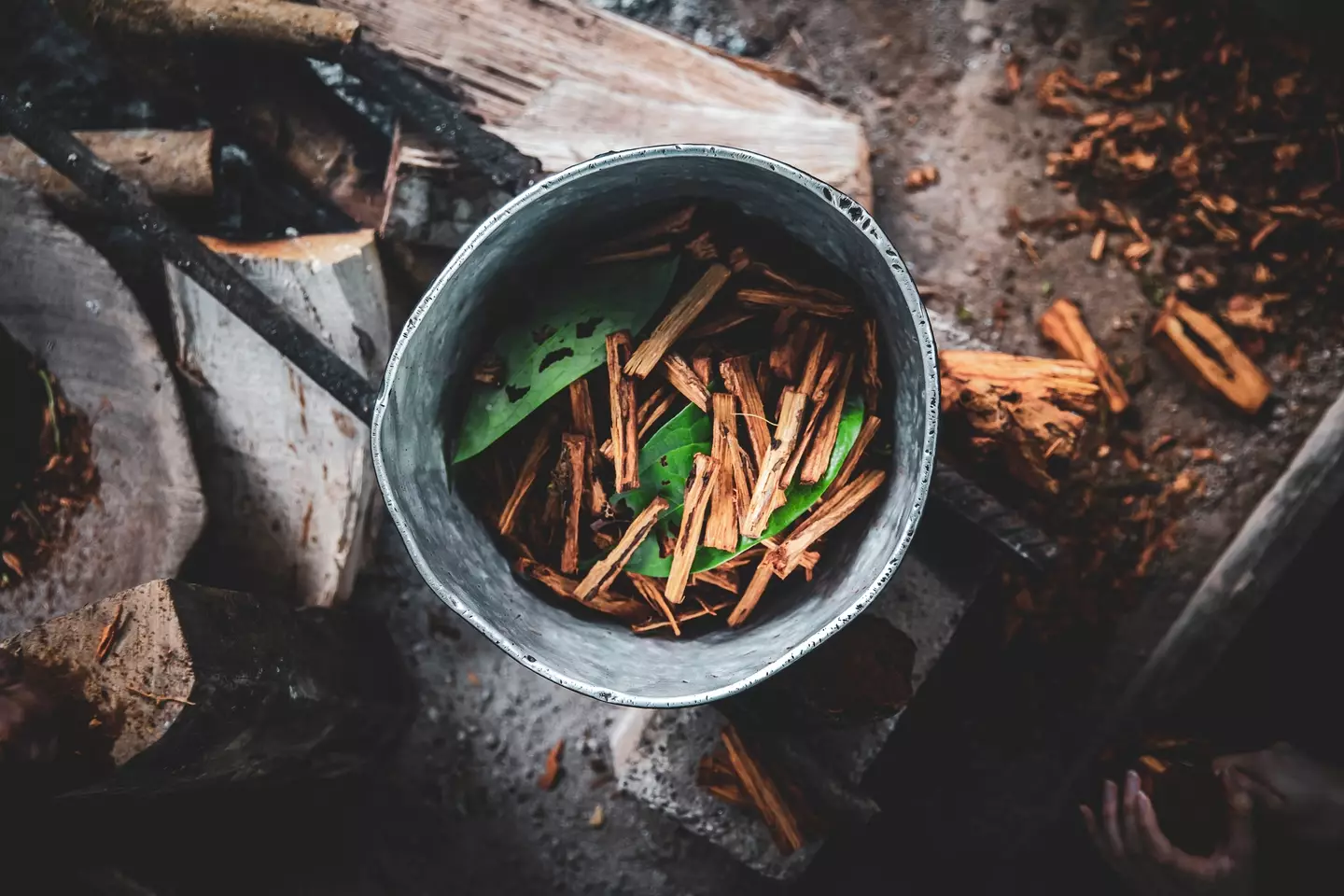


Psychedelic substances can have a wide range of effects on the body and mind. Some find the trips to be therapeutic while others have some more deadly consequences.
Ayahuasca is a drug with deep cultural roots that has been linked to healing and transformation.
Ayahuasca is a plant-based psychedelic drug, traditionally used in Indigenous Amazonian ceremonies. Also known as yagé, kamarampi and huni, Ayahuasca is typically brewed and consumed as a tea or a concentrated liquid, but it can also be smoked.
The drink is made by combining the leaves of the chacruna shrub and the ayahuasca vine. The leaves contain the hallucinogenic compound DMT while the vine contains MAO inhibitors, which block the digestion of DMT and allow it to enter the bloodstream and reach the brain.
Advert
DMT is structurally similar to serotonin (the 'happy hormone'), which explains its powerful emotional effects.
Many people turn to Ayahuasca for spiritual insight, emotional healing, or to confront past trauma. Users often report a heightened sense of emotion, blurring of time, and vivid hallucinations, which allow them to reconnect with past memories and gain a new perspective.
Some early research suggests Ayahuasca could hold promise in treating conditions such as anxiety and depression, post-traumatic stress disorder (PTSD), addictions and eating disorders.
According to brain imaging studies, Ayahuasca may reduce activity in the default mode network (DMN), a region associated with depression and anxiety.
The experience can feel incredibly therapeutic as users confront their thoughts and feelings without judgment.
Ayahuasca trips have been linked to feelings of mental clarity, peace and even a renewed sense of purpose following the experience.
Some studies have also shown that DMT has been linked to proteins responsible for memory, neural plasticity and regeneration of new neurons and may even play a role in fighting cancer cells.

Due to the drink's acidity, some drinkers have reported violent retching, vomiting and diarrhoea after their trip. In rare cases, serious health complications and deaths have been reported, often when the brew is consumed in unregulated settings or mixed with other substances.
All in all, Ayahuasca experiences can vary dramatically from person to person.
One individual described their post-ceremony transformation online, saying they returned with 'zero cravings for anything—sugar, coffee, social media, TV', which they found 'almost repulsive.' Months after their journey, the individual said they 'still feel the lingering effects' including 'more ease, more peace, more presence.'
In the YouTube comments section of AsapSCIENCE's video about Ayahuasca, one user shared their experience.
"I've done it, it was an amazing experience, i've never loved myself so much and i could feel things i used to feel when i was 4 years old," the user wrote. "There were bad feelings too, were i could feel a pain similar to giving birth and i could see myself giving birth to all the bad things of the world."
Someone else replied: "Ayahausca really healed me years back".